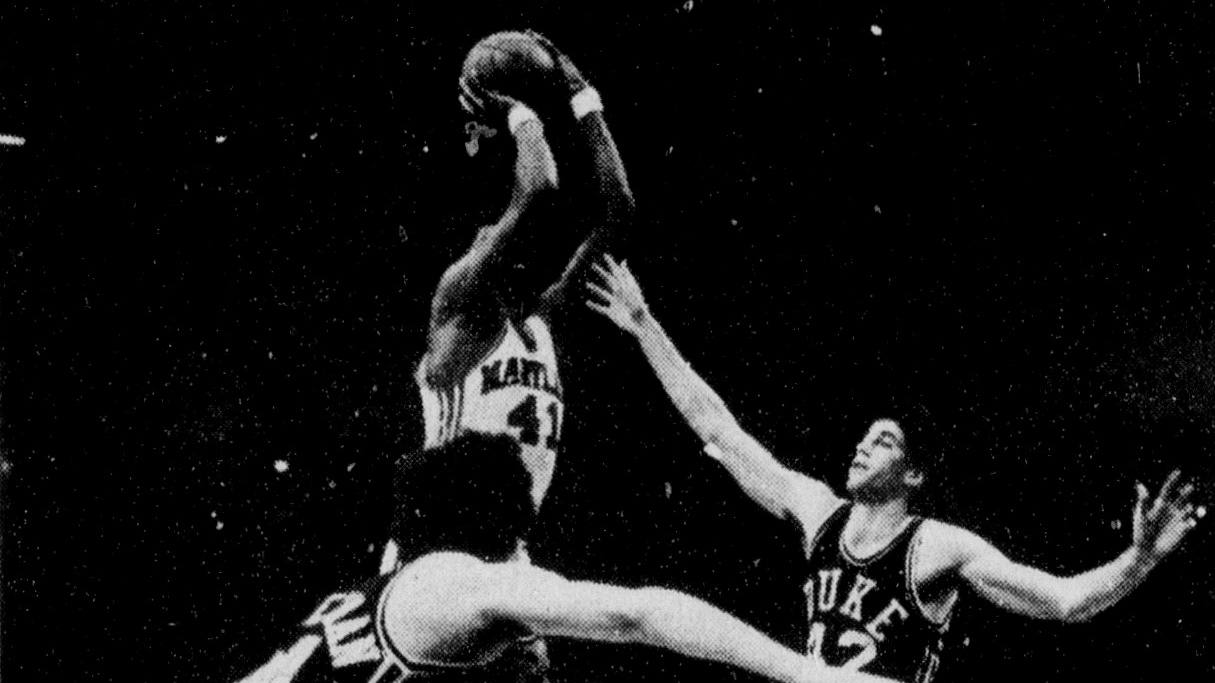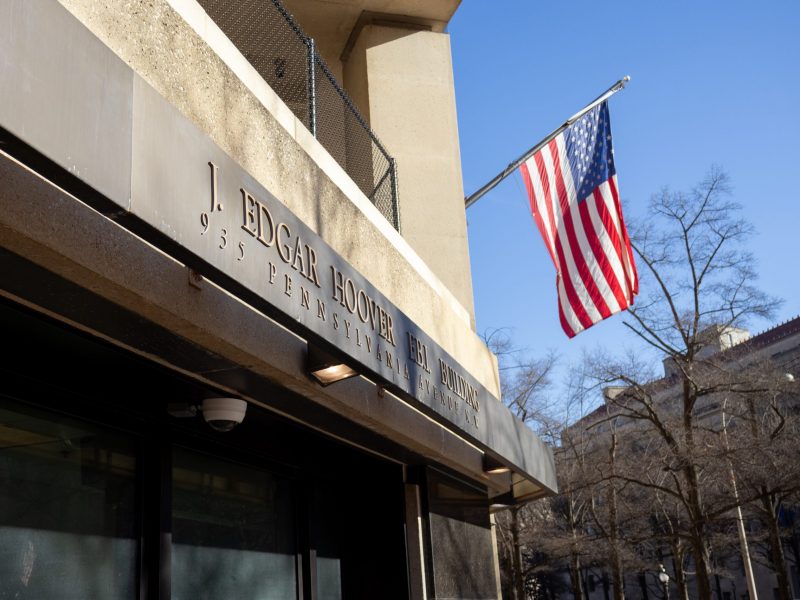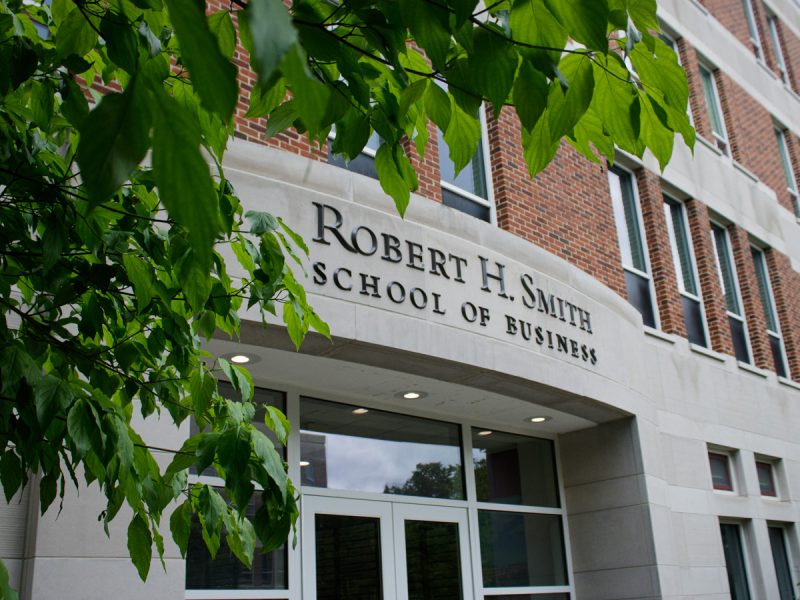For all of Len Elmore’s accolades, there’s one that stands above the rest.
It’s not the All-American nod in 1974, nor the three all-ACC selections he racked up in the early 1970s. All those have their value, of course, with each recognition spotlighting a glittering career that earned Elmore induction into Maryland athletics Hall of Fame in 1997.
But few honors hold as much weight to Elmore as the Model Citizenship Prize. The award, given to the senior student who has “most nearly typified the model citizen and has contributed significantly to the general advancement of the interests of the University,” is one of the highest distinctions a student can earn while enrolled in this university. Elmore was named a co-winner of the award in 1974 along with Theodore Laster. The two were the first Black recipients of the award.
“I was shocked,” Elmore recalled. “I didn’t even know the award existed.”
The award went by a different name back then, one tainted by anti-Black and gendered overtones: the H.C. Byrd Award for men and Sally Sterling Byrd Award for women. H.C. Byrd, commonly known as Curley, was the famed football coach-turned president of this university.
He was also a virulent racist and advocate for segregation.
“I didn’t think much of the name of the award,” Elmore said. “We weren’t as woke as we are today back in those days.”
Elmore is one of a host of former Model Citizenship Prize winners who has pushed for a change to the award’s name and gendered status. After years of conversations and months of correspondence with this university’s administration, the changes were ratified last August.
For Elmore and other past winners, the changes were vital. For decades, the award served as yet another outlet for racist and sexist ideologies to take root. Now, it’s an honor that is more representative of the campus community at large: open to people of different identities, bonded by a collective commitment to community.
“The award by itself speaks for itself,” former winner Steven VanGrack said. “You don’t have to give it a name.”
[This year’s SGA election ballot will include a question about Francis Scott Key]
Public service has long been a part of VanGrack’s life. He was the mayor of Rockville from 1985-1987 and was the Democratic candidate for the House of Representatives from Maryland’s eighth congressional district in 1994.
Now a lawyer, much of VanGrack’s political education is grounded in his experiences as a student at this university. He served in this university’s SGA, offering him another avenue to learn from others’ lived experiences. He fondly remembers when Muhammad Ali spoke on campus, a pivotal moment in shaping his understanding of the world around him, VanGrack said.
“One of the greatest educations I got,” VanGrack said of Muhammad Ali’s speech. “What an education — that wasn’t my classroom education.”
It was this commitment to service and education that helped VanGrack earn the Model Citizenship Prize in 1970. Much like Elmore, VanGrack couldn’t believe it.
“It was in the middle of commencement… the whole reception was stopped for us to get the award,” VanGrack said. “I didn’t realize the importance until I received the award at graduation.”
VanGrack struck up a relationship with Elmore in the years following their respective graduations. Award winners tend to stay in contact over the years, regularly hosting events to keep their connection strong.
And sandwiched between conversations about their experiences at law school and reminiscing over Elmore’s past Maryland men’s basketball successes, the implications of the award — and its namesake’s sordid past — began to come up.
“I went through a number of phases,” Elmore said. “I would ignore the name, but then you look at what he represented, Byrd represented. It was … disappointing that I couldn’t talk about the award without mentioning that name.”
Soon, those conversations turned into calls for action. VanGrack and Elmore began to reimagine the award and its role in the campus community.
The next step was getting other past winners on board. It’s a close-knit community, 1969 recipient Ray Ferrara explained — an environment where Maryland alumni are able to relish the memories of their past.
“It’s been fun to hear other people’s stories,” Ferrara said.
[Indianapolis’ Black music scene comes to life at NCAA men’s basketball tournament]
VanGrack and Elmore’s proposal received near-unanimous support, VanGrack said. In fact, other former winners clamored for additional aspects of the award to be reimagined, including its gendered elements.
“It mostly came from the women who responded,” VanGrack said. “They said, ‘There should not be a separate women’s award.’ … We’re in a society now where we don’t want to see the best man or the best woman, you want to see the best person.”
Soon, VanGrack and Elmore set their sights on this university’s administration.
The process was a seamless one, said Patty Perillo, student affairs vice president at this university. Last August, six months after VanGrack and Elmore had initially reached out to former university President Wallace Loh to change the award’s name, the award was officially degendered and renamed to the Model Citizenship Prize.
“I think it aligns with our institutional values to make sure that every student here feels valued, welcomed and affirmed,” Perillo said. “It really does speak to our commitment around inclusion and we need to make sure that every student sees themselves in the possibility of any award that we hold.”
In addition to the name change and degendering of the award, plans were put in place for past recipients to start the Model Citizenship Prize endowment for future winners of the award, according to emails obtained by The Diamondback.
Another Model Citizenship Prize fund was also started, this time to pay for watches — the prize that has typically accompanied the Model Citizenship Prize honor.
There’s more to be done, Elmore said; other identities that need to be held up and cherished amid the strain of persecution. Communities of color have reached out to this university’s administration in recent months, pushing to gain protection and support.
But for Elmore, it’s a step in the right direction. The feelings of confusion and disappointment that once accompanied discussion of the award — and its discriminatory history — have largely slipped away. Now, it can get back to its essence: a symbol for leadership and service within the campus community.
“For me, it symbolizes a recognition that — at least in my mind, I stood for something good. I stood for something… that would advance the university and its community in some way, shape or form,” Elmore said. “That’s what it’s all about, to take people to a different purpose, a higher purpose.”
CORRECTION: Due to a reporting error, a previous version of this story misstated that Len Elmore was the first Black recipient of the Model Citizenship Prize. Elmore and Theodore Laster were both the first Black recipients of the award. This story has been updated.



